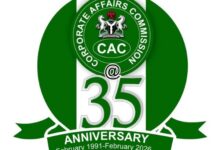The New Port Harcourt Refining Company, PHRC 2, is now ready for the production of more premium motor spirit, PMS, popularly called petrol, and will reduce fuel import by 40 per cent when fully operational.
When the FCCUs are re-streamed, the refinery will be working at 95 per cent of its 150,000 barrels per day capacity, it is expected that petrol importation will reduce.
This, according to Vanguard, was disclosed to journalists this weekend, by Chrome Oil Services, a member of the Chrome Group, one of the three contractors, handling the phased rehabilitation of the refinery.
Recall that Vanguard Sweetcrude had exclusively reported last week that the four Nigerian refineries are weak in petrol production and high in fuel oils because the FCCUs were still undergoing rehabilitation.
The Project Manager, Chrome Oil Services, Mr. Bombey Adigbara, said: “The job on the FCCUs is about 98 percent completed and by next weekend, we will hand over and the FCCUs will be re-streamed and the refinery will be working at about 95 percent of its throughput.
“Three companies participated in this phased works and COS is the first, and we are still doing the work. At the moment, the refinery has started preliminary production, which means that it is Unit 1 that is producing.
“The Unit 3 is being handled by Chrome, and by the end of next week, we will hand over the plant and the FCCs will be streamed. When this is done, we will start experiencing high level of PMS production in Nigeria. So, all the critical jobs are being done by us.”
He disclosed that there are three major contractors handling the ongoing phased rehabilitation of PHRC, namely Chrome, DKJ/ITC, and DBM.
According to him, “The FCC is 98 per cent completed. The FCC has a lot of critical components and it is also vendor specific, so you have to have a lot of experience to work in that place. We have achieved 98 per cent and when it comes up you will have a reduction in the importation of PMS.”
Chrome capacity
Adigbara also dismissed widespread speculations about the capacity of Chrome Oil Services to execute refinery TAM, saying before the 1999/2000 TAM for PHRC, Chrome had carried out a number of works for the Kaduna and Warri refineries as well as the Indorama Elema Petrochemical Company.
Besides, he noted, Chrome had remained at PHRC since the 2000 TAM till date, offering intervention services, adding that in 2015 alone, Chrome had dome more than 50 jobs in the refinery to keep it running.
Feedstock/swap agreements
Also speaking, Executive Chairman, Chrome Group, Sir Emeka Offor, noted that the problem with the refineries is not just about TAM, which should be done every two years, but also with the lack of crude supply following government’s swap and offshore processing agreement, OPA.
According to him, “the issue with the refinery is not only TAM but lack of feedstock to sustain their operations. The cost of TAM is very high and if you finish TAM and no feedstock then it is not economical.”
He also added that pipelines vandalism came to compound the issues, saying: “Federal Government and NNPC must ensure adequate supervision of the pipelines to reduce vandalism to the barest levels.”
Posted by Janice Johnson













